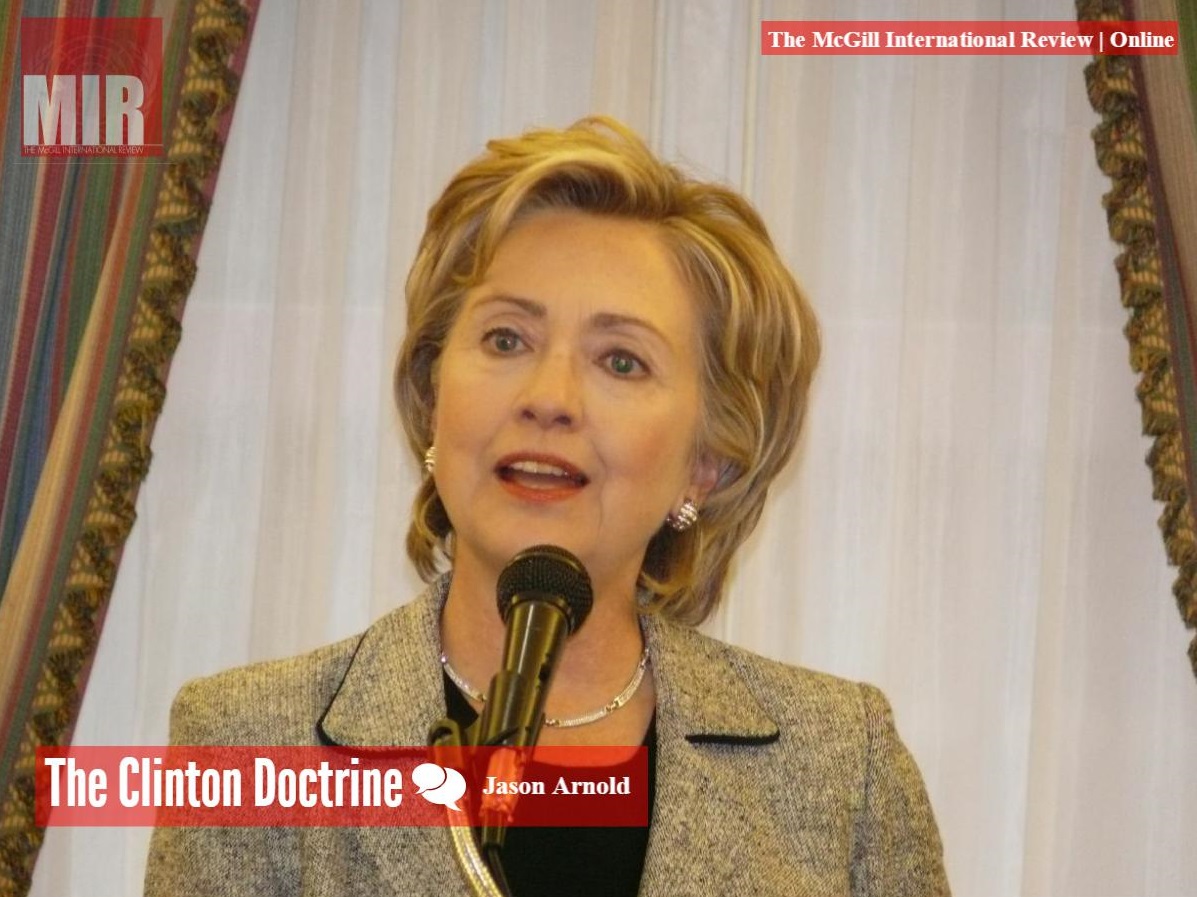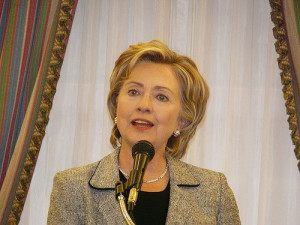The Clinton Doctrine


Former Secretary of State, New York Senator, and First Lady. A member of the American political establishment for over 30 years. If anyone can be convincingly used as an example of America’s ruling class, that person is Hillary Rodham Clinton. In this election cycle, she has cited her political pedigree as a major selling point for her presidency. A long history is only part of the picture, though, and what she did and accomplished during her political history gives more insight into her actual ability to handle foreign policy and what her presidency would look like.
Hillary’s tenure as First Lady, both of Arkansas and The United States, had a relatively hands off role. When her husband, Bill, was Governor of Arkansas, she primarily worked as a lawyer for the Rose law firm and largely avoided politics. However, the First Lady of the United States has always had a diplomatic role, and as such, she was significantly more involved in the foreign policy of the United States during that administration. As First Lady, Hillary visited a number of countries and made attempts to influence on specific issues, such as micro-credit and women’s rights. However, despite her infamous claims of dodging sniper fire, Hillary was generally absent during the most pressing foreign policy issues of the Clinton administration. The breakup of Yugoslavia and subsequent wars in the Balkans was largely left to her husband and those State Department members in the inner circle, while both her and Bill largely failed to act during the Rwandan genocide. Hillary spoke favourably of NAFTA in 1996, citing it as “proving its worth” at an event for the UNITE union.
After leaving the White House, Hillary began pursuing her own political career in earnest, becoming the junior Senator for New York in 2000. As Senator, her voting records show much of her own opinions on foreign policy. Her first major bill which affected the outside world was the resolution for the invasion of Iraq. Of the then 50 democratic senators, Hillary was one of 29 who voted in favour of the war, although she would later recant this position, claiming it was a mistake. During her first election, she said that “the NAFTA agreement was flawed. The problem is we have to go back and figure out how we are going to fix that.” By 2004, she had once again reversed this position, saying that “on balance NAFTA has been good for New York and America”. She approved several free trade deals during this time, including agreements with Chile, Singapore, Australia, and Oman. However, she did break from this general policy on the Central America Free Trade Agreement. As a senator, she primarily sponsored bills which emphasized overseas development in terms of foreign policy.
As Secretary of State, Hillary was a vocal advocate for interventionism. Recounting his intervention in Libya, President Obama recalled that a contingent of the State Department, led by Hillary Clinton and Susan Rice, pushed heavily for intervention in Libya and ultimately won out over the President’s initial instincts. During the same period, Hillary was one of the most vocal supporters of an intervention in the Syrian civil war, pushing for military actions against the Assad government. This advice was not taken by Obama, and Clinton would later state that “the failure to help build up a credible fighting force of the people who were the originators of the protests against Assad … left a big vacuum, which the jihadists have now filled.” Going against the president in such a way suggests a heavy lean towards interventionism in Hillary’s worldview.
Hillary also advocated for the TPP at the time, saying it “sets the gold standard in trade agreements to open free, transparent, fair trade, the kind of environment that has the rule of law and a level playing field.” As one of the major members of the state department during early US negotiations, it is likely Hillary wished to continue the efforts she made in completing the deal.
As a presidential candidate, Hillary has once again needed to realign her foreign policy views. She has since renounced the TPP, first expressing that it may be necessary to “reserve judgement” on the deal in her book, Hard Choices. As of today, Clinton’s campaign site says that she will “Prevent countries like China from abusing global trade rules, and reject trade agreements, like the TPP, that don’t meet high standards.” However, her foreign policy views on military strength remain largely intact. In terms of national security, she cites the need to “Stand up to Vladimir Putin”. In the future, it is likely that she will continue with such policies, as her history indicates her campaigning positions do not always line up with her actual positions.
Hillary’s declared foreign policy is one which changes based on what she believes her constituents want to hear. Her actual policies will follow her history, and will generally follow a policy of free trade and hawkishness. While many argue her experience on the world stage will be useful as a president, that remains to be seen. Military adventurism was highly destructive to the United States in the 2000s, and a repeat of that era is unlikely to be helpful.
